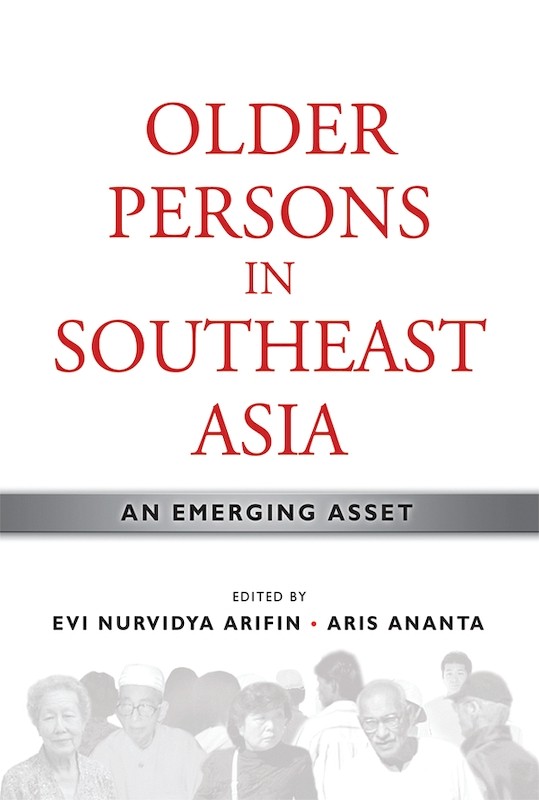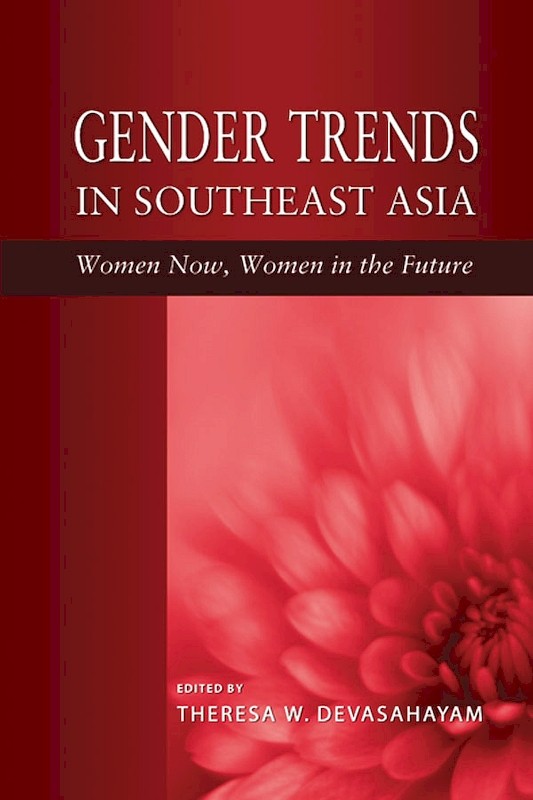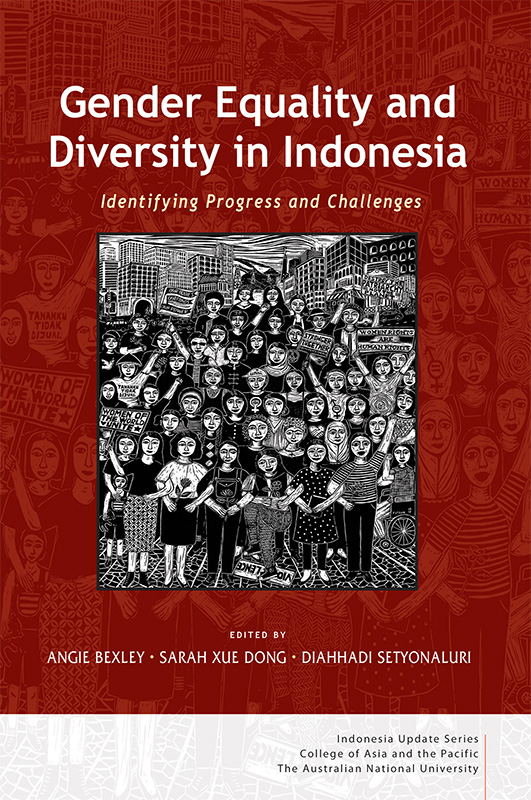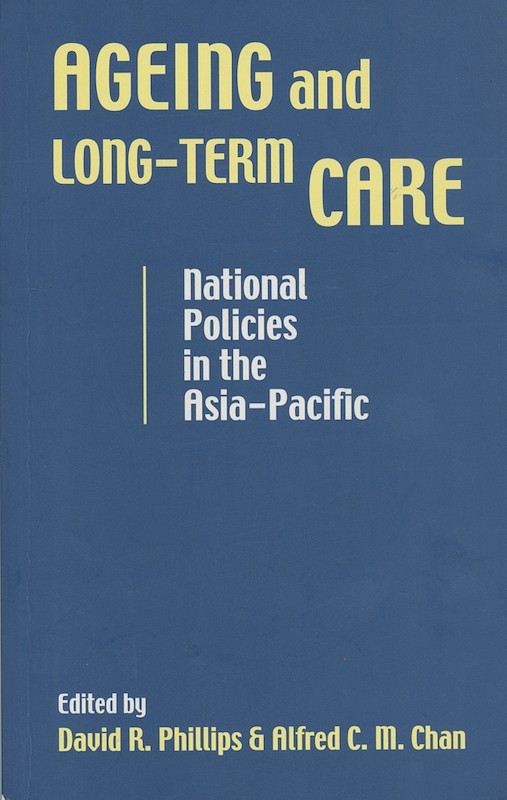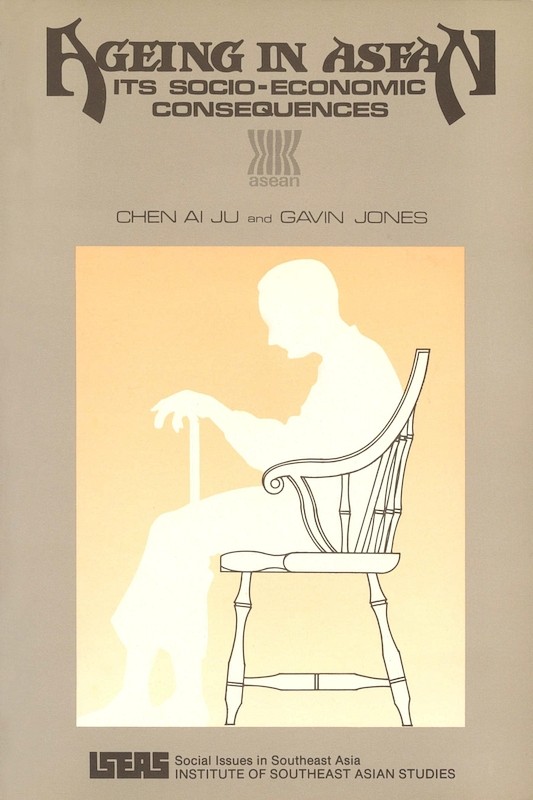Gender and Ageing: Southeast Asian Perspectives
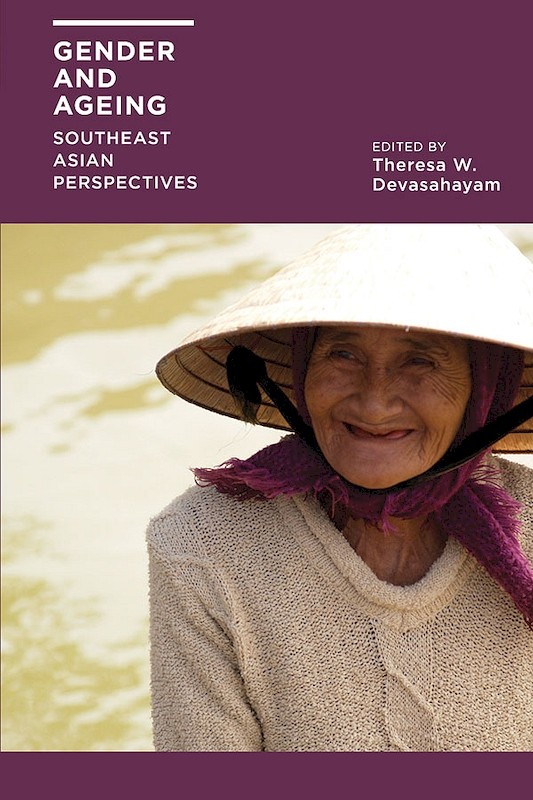
Theresa W. Devasahayam, editor
Date of publication:
2014
Publisher:
Institute of Southeast Asian Studies
Number of pages:
353
Code:
PIC229
Soft Cover
ISBN: 9789814517973
About the publication
This book examines common themes related to gender and ageing in countries in Southeast Asia. Derived from quantitative or qualitative methods of data collection and analysis, the chapters reveal how ageing has become tempered by globalization, cultural values, family structures, women's emancipation and empowerment, social networks, government policies, and religion.
The chapters are concerned primarily with the following questions related to gender and ageing: (a) how do women and men experience old age? (b) do women and men have different means of coping financially and socially in their old age? (c) does having engaged in wage work for longer periods of time serve as an advantage to older men in contrast to older women? (d) does a woman's primary role as caregiver serve to disadvantage her in old age? (e) what kinds of identities have older women and men constructed for themselves? (f) do women and men prepare for ageing differently and has this preparation been mediated by educational levels? (g) does having a higher level of education make a difference to how one experiences ageing? (h) how does class shape the way women and men cope in old age? and (i) what does it mean to be a 'single' older person who has either lost a spouse through death or has never been married?
Because the book employs a cross-country analysis, readers gain an understanding of contemporary emergent trends not only in each of the countries but also in Southeast Asia as a whole. Wherever relevant, some chapters have also identified similarities in trends on gender and ageing between countries in the Western hemisphere and those in Southeast Asia to highlight broader patterns across the world.
"The share of the elderly in Southeast Asia's population is steadily rising, and it is increasingly important to understand and plan for the implications of this trend. While in some aspects, the situation of older women and men in the region is similar, their life experiences of education, marriage, child-raising, work, and social networks differ, and this makes for different issues as they grow older. Moreover, a much higher proportion of elderly women than men face old age without a spouse. This book makes a major contribution to understanding the issues arising from ageing trends in Southeast Asia. Individual chapters in the book deal authoritatively with almost every country in the region, and are written by noted experts on the subject. The book will be an essential reading for anyone wishing to understand ageing issues in Southeast Asia, particularly from the perspective of gender."
- Gavin Jones, Director, JY Pillay Comparative Asia Research Centre, National University of Singapore
The e-chapter on chapter 1 " Growing Old in Southeast Asia: What Do We Know about Gender?" , is downloadable free of charge.
The chapters are concerned primarily with the following questions related to gender and ageing: (a) how do women and men experience old age? (b) do women and men have different means of coping financially and socially in their old age? (c) does having engaged in wage work for longer periods of time serve as an advantage to older men in contrast to older women? (d) does a woman's primary role as caregiver serve to disadvantage her in old age? (e) what kinds of identities have older women and men constructed for themselves? (f) do women and men prepare for ageing differently and has this preparation been mediated by educational levels? (g) does having a higher level of education make a difference to how one experiences ageing? (h) how does class shape the way women and men cope in old age? and (i) what does it mean to be a 'single' older person who has either lost a spouse through death or has never been married?
Because the book employs a cross-country analysis, readers gain an understanding of contemporary emergent trends not only in each of the countries but also in Southeast Asia as a whole. Wherever relevant, some chapters have also identified similarities in trends on gender and ageing between countries in the Western hemisphere and those in Southeast Asia to highlight broader patterns across the world.
"The share of the elderly in Southeast Asia's population is steadily rising, and it is increasingly important to understand and plan for the implications of this trend. While in some aspects, the situation of older women and men in the region is similar, their life experiences of education, marriage, child-raising, work, and social networks differ, and this makes for different issues as they grow older. Moreover, a much higher proportion of elderly women than men face old age without a spouse. This book makes a major contribution to understanding the issues arising from ageing trends in Southeast Asia. Individual chapters in the book deal authoritatively with almost every country in the region, and are written by noted experts on the subject. The book will be an essential reading for anyone wishing to understand ageing issues in Southeast Asia, particularly from the perspective of gender."
- Gavin Jones, Director, JY Pillay Comparative Asia Research Centre, National University of Singapore
The e-chapter on chapter 1 " Growing Old in Southeast Asia: What Do We Know about Gender?" , is downloadable free of charge.
Contents
-
Gender and Ageing: Southeast Asian Perspectives
[Whole Publication, ISBN: 9789814517980], by Theresa W. Devasahayam, author -
Preliminary pages
-
1. Growing Old in Southeast Asia: What Do We Know about Gender?, by Theresa W. Devasahayam, author
-
2. Gender and Ageing in Thailand: A Situation Analysis of Older Women and Men, by John Knodel, Napaporn Chayovan, authors
-
3. Gender and Well-being of Older Persons in Cambodia, by John Knodel, Zachary Zimmer, authors
-
4. Preparations for Old Age and Social Participation of Present and Future Older Persons in Thailand: Gender Difference, by Vipan Prachuabmoh, author
-
5. Gender and Health Status among Older Adults in Vietnam, by Bussarawan Teerawichitchainan, author
-
6. Ageing and Gender Preferences in Rural Indonesia, by Philip Kreager, Elisabeth Schroder-Butterfill, authors
-
7. Exploring the Experiences of Older Men and Women in Caregiving and Care-receiving in Sarawak, Malaysia, by Ling How Kee, author
-
8. An "Active Ageing" Approach to Living Alone: Older Men and Women Living in Rental Flats in SIngapore, by Thang Leng Leng, author
-
9. Ethnic Patterns and Styles of Active Ageing among Widows and Widowers in Singapore, by Kalyani K Mehta, author
-
10. Employment Patterns of Older Women in Indonesia, by Aris Ananta, author
-
11. Gender Differentials in Work and Income among Older Malaysians, by Tey Nai Peng, Tengku Aizan Hamid, authors
-
12. Gender and Economic Well-being among Older Filipinos, by Grace T Cruz, Anna Melissa C. Lavares, Maria Paz N. Marquez, Josefina N. Natividad, Yasuhiko Saito, authors
-
13. Work, Retirement and the Gender Divide in the Philippines, by Josefina N. Natividad, Yasuhiko Saito, Grace T Cruz, authors
-
Index

